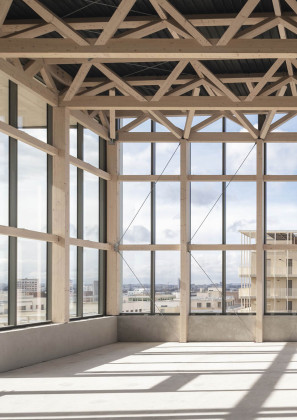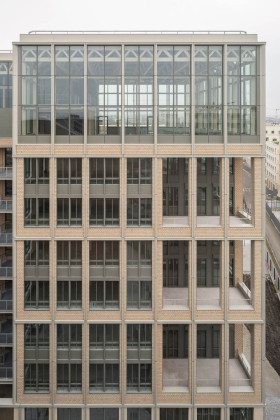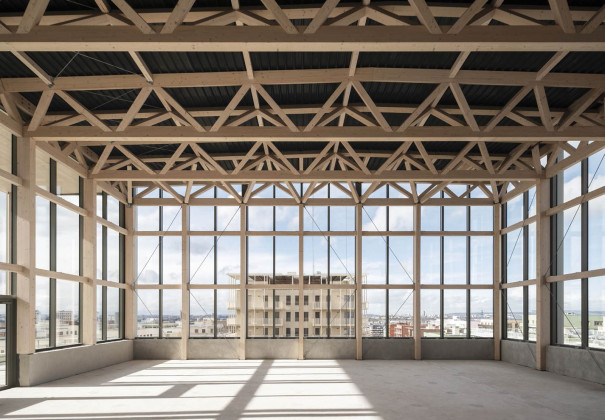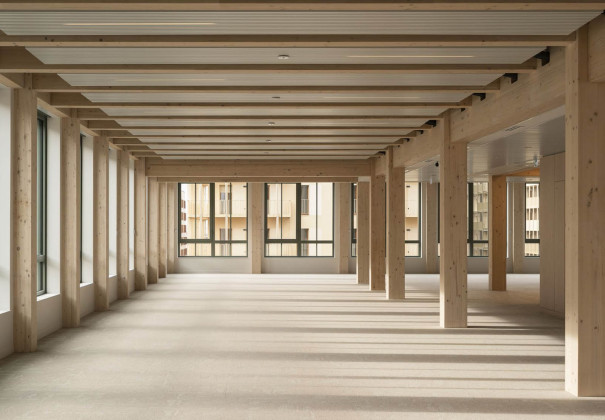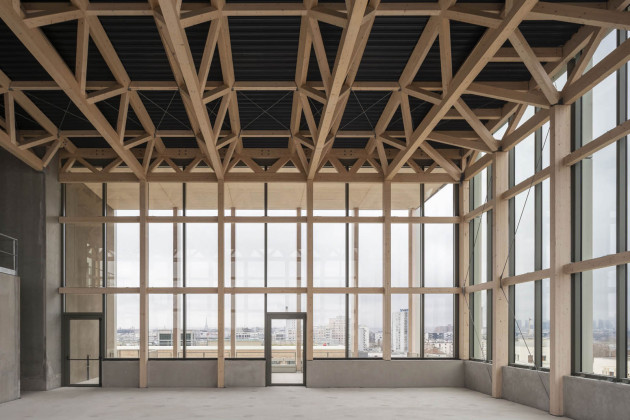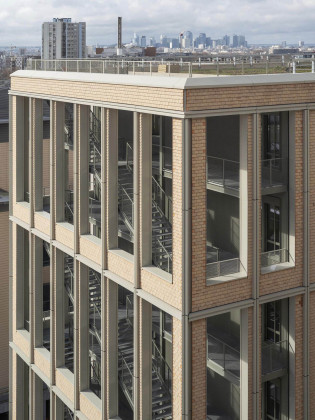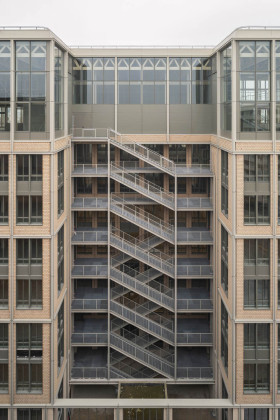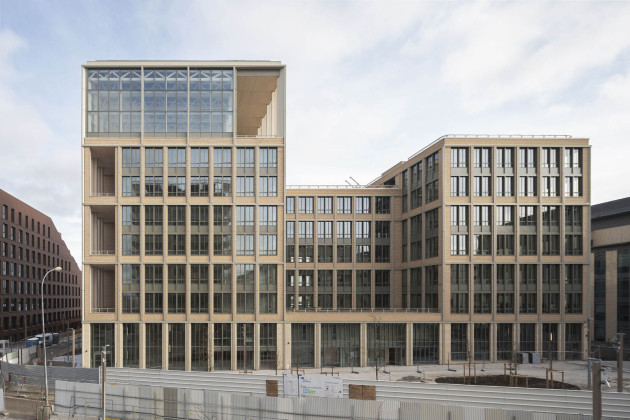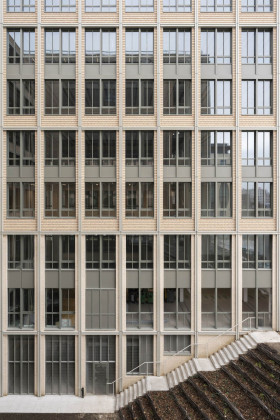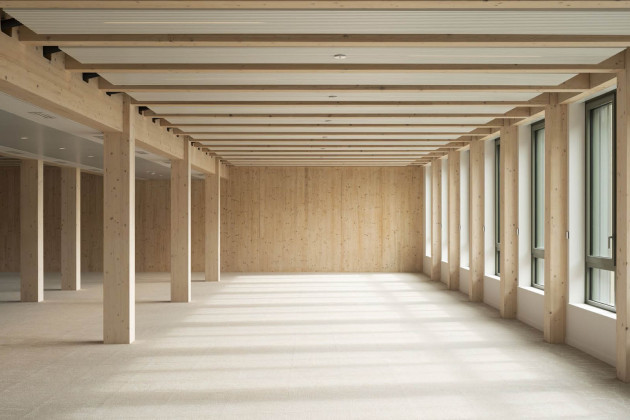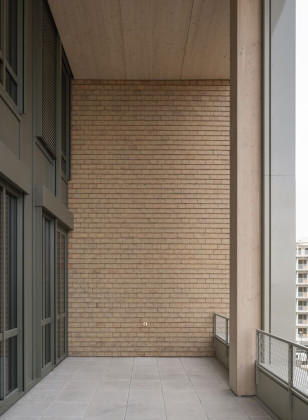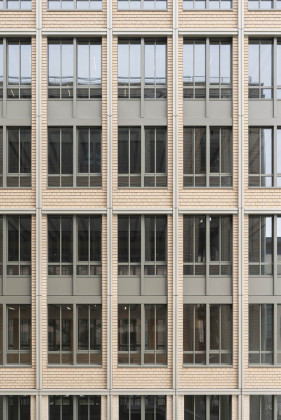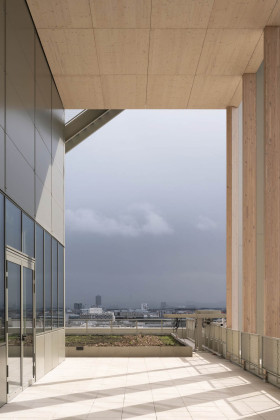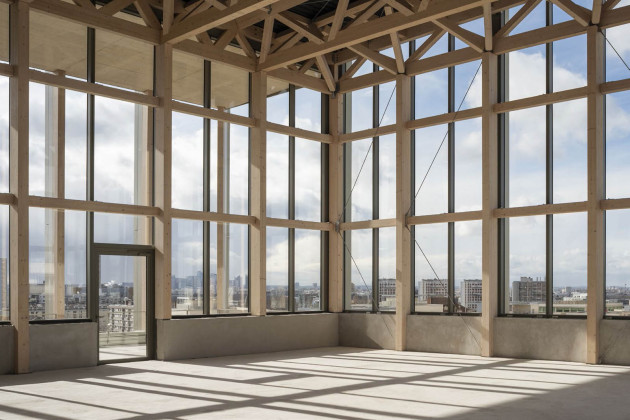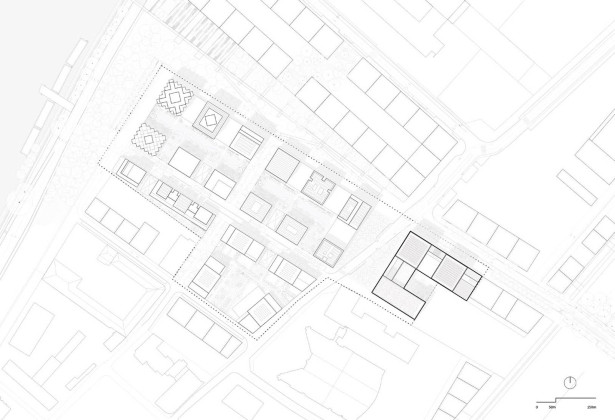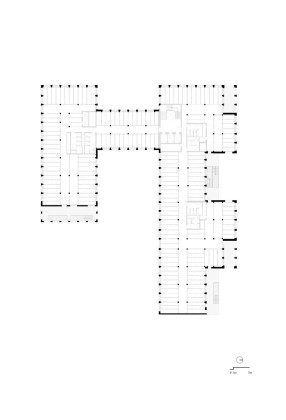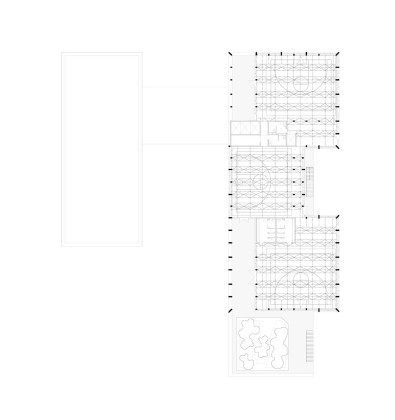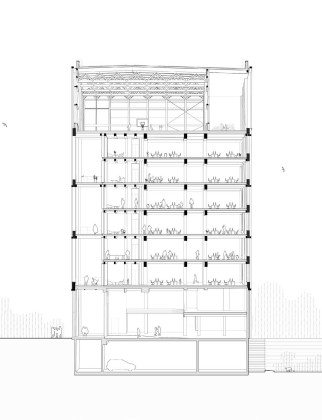Athletes' Village in Saint-Ouen
An ephemeral village, a district inaugurated on February 29 by the French President, the Athletes' Village will be the center of the world in the summer of 2024, before becoming a fully-fledged city district in 2025.
As part of the most ambitious project of the decade for the Paris metropolis, architect Dominique Perrault has been entrusted with the design of sector E, located on the right bank of the Seine, between the Cité du Cinéma and the Vieux Saint-Ouen. Called "Les Belvédères" in reference to its location and the height of its buildings (up to the GF+ 10), this is the most residential of the new district’s sectors, which will include more than a fifth of the Village’s 2,500 homes. These are divided, in a mixed program, into five lots and nineteen buildings, all new construction, on which seven architecture agencies worked as a cohesive unit.
The unity of the district is reflected in the material tones of the facades, in colors close to those of the old and industrial town. The construction language common to all the buildings is that of an evolving post-and-beam structure, which will enable non-bearing elements to be easily replaced to transform the Athletes’ Village into a neighborhood for family use. On the ground floor, priority will be given to local shops and craftsmen’s studios, to offer an attractive range of products and services in keeping with those found in the Vieux Saint-Ouen area.
Reversibility is at the heart of the project, whose primary aim is to meet the needs of the Saint-Denis, Saint-Ouen-sur-Seine, and L’Île-Saint-Denis territories once the event is over. The objective is to welcome athletes and para-athletes while ensuring the legacy of a lively, high-quality neighborhood in terms of its uses and architectural identity.
Sport in the city
In this favorable context, DREAM is responsible for building 13,477 m2 of office space on the E3 block and is proposing to add a 1,000 m2 sports facility on the roof. Dedicated to the practice of basketball, the gymnasium, set off by great heights and beautiful transparencies, offers an unobstructed view of the Grand Paris.
This innovative program reflects the long-standing commitment of the DREAM agency, and its founder Dimitri Roussel, to sports as a means of enhancing urbanity. To implement it, DREAM proposed an innovative and attractive business model and included a sports operator in the project. This evolution of the program reflects the adaptation of architecture to contemporary societal issues, contributing through sport to the well-being of the city of tomorrow.
The project was co-promoted by Nexity, Eiffage Immobilier and CDC Habitat, with investment from Groupama Immobilier and the companies Eiffage Construction and Dalkia Smart Building, in the pursuit of very high environmental performance.
Favoring encounters
This building is one of the most emblematic of the Paris Games site. It’s not just for future residents, but also for those who’ve been here all their lives. For DREAM, social grafting with the territory is the main challenge of the project. The architecture features an active design that creates links and encounters between the various users. On the ground floor, a Food Court activates and extends the public space by creating a continuity of floor space. Throughout the building, external air and light circulations encourage movement and facilitate a vertical mix of uses. The rooftop gymnasium is used by all residents as a proximity facility.
A hollow landscape
At the heart of the site, an open-ground planted area acts as an island of freshness. The garden’s drop provides natural lighting for the parking lots, whose generous ceiling heights make them ideal for future conversion. The principle of reversibility thus extends from the urban scale to the one of the building itself.
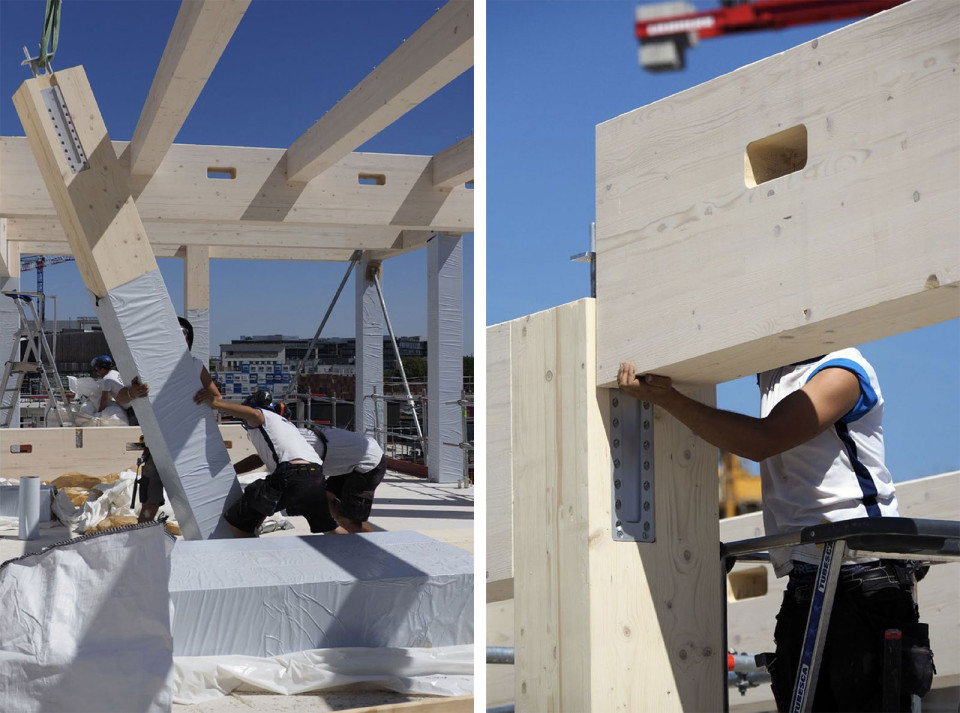
Construction methods
As the only 36-meter-high building with a timber structure, the project achieves high carbon storage performance (700 kgCO2/m2 versus 1500 kgCO2/m2 on average). The low-carbon concrete infrastructure provides naturally lit, reversible parking spaces for extending the ground floor programs, as well as a solid wood post-and-beam superstructure and prefabricated low-carbon concrete floors from GF+1 to GF+6. The top level, with its 8-meter headroom and exposed timber framework, lights up in the evening, revealing the spectacle of sport.
The same applies to comfort and energy management: a photovoltaic power plant guarantees 20% self-consumption and better control of consumption, particularly in winter, and the design of the building itself guarantees less than 70 hours of discomfort during heatwaves.
Materiality
The materiality, color and texture of the cladding tiles evoke the brickwork and fabric of the Vieux Saint-Ouen, reminiscent of the site’s historic industrial architecture, accentuated by the use of large, double-height glass frames.
 28.03.2024
28.03.2024



